SUMMARY
This is AI generated summarization, which may have errors. For context, always refer to the full article.
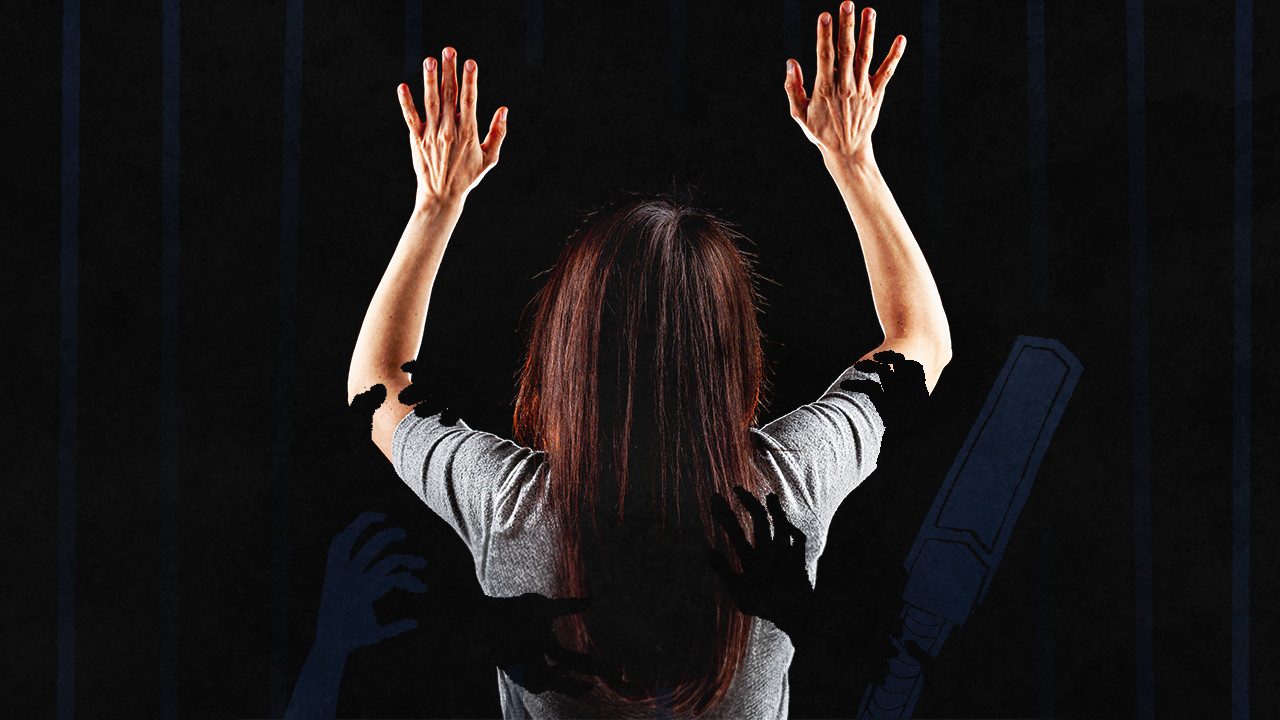
Trigger warning: This story contains details about sexual harassment
April 21 was an otherwise normal day for 63-year-old Gloria Almonte, who went to the New Bilibid Prison’s Maximum Security Compound to visit her husband, Dionisio. What was not routine was the inspection she was subjected to: an intrusive body search that stripped her of her clothes, her dignity, and her rights.
Gloria said after she arrived at the prison facility at around 1:45 pm, she was subjected to body searching by Bilibid’s inmates visitation services unit. She said she was brought to a cubicle for the strip search. Gloria made it clear that she was only visiting her detained husband and did not bear any contraband.
But Gloria said the personnel insisted and said they were just following orders given by their higher-ups. She was told that personnel will only do frisking (kapkap) if the visitors are just bringing supplies. But for visits, loved ones must undergo a body search. Although she aired her disapproval over the rule and said she would complaint about it, Gloria was left with no choice but to sign a waiver for the strip search because she wanted to see her husband.
“Halos umiiyak at nanginginig ang katawan habang pinatataas ang t-shirt at bra, pinahubad din ang pants at panty. Pina-squat ng tatlong beses at pinatuwad kasabay pinabuka pati ari upang silipin kung may tinatagong illegal,” Gloria narrated in her letter to Kapatid, a human rights group that helps political prisoners.
(I almost cried, my body was shaking, as the screener asked me to slowly raise my T-shirt and bra. They also asked me to take off my pants and panty. They ordered me two squat three times and bend over, while I was asked to spread open my genitals for them to check if I was hiding any contraband.)
Gloria said the experience was painful for her. She was confused about what to feel at the time, but it was clear to her that she felt shame.
“Pakiramdam ko tinapak-tapakan ang pagkatao ko, ang dignidad ko bilang tao na ito na lang ang meron ako (I felt trampled all over. They trampled on my dignity, which was the only thing I had left),” she said.
Strip searches involve the removal of a person’s clothes, including undergarments, to permit a visual inspection of a person’s body, according to the United Nations (UN) Rules for the Treatment of Women Prisoners and Non-custodial Measures for Women Offenders with their Commentary, also known as Bangkok Rules. Body cavity searches, meanwhile, are more intrusive and involve the inspection of a person’s genitals and anal region.
Gloria said her husband’s incarceration was already a big challenge for their family. But the new rules that violated her rights added to this burden, she said.
Her husband, Dionisio, is among the hundreds of political prisoners in the country. Political prisoners are those who belong to activist and human rights groups, or those with known affiliation with political parties. In the Philippines, political prisoners face a long list of struggles and challenges, including the slow movement of their cases.
Recurring problem
Unfortunately, Gloria is not the only one who has been subjected to a strip search.
When she visited her husband, Maricel* was also subjected to one where she was ordered to remove her clothes, including undergarments. Maricel said she was made to squat ten times, while completely naked. She bent over, with her hands on her buttocks, “making sure [that her] private parts were visible while the body searcher looked on.”
“The searcher said I wasn’t doing it right and to do it properly next time. It was really traumatic and shameful to experience such things. For now, I am still considering whether I can visit my husband despite our longing to see him as a family. It’s like I can’t face being stripped down and searched again by the BuCor body searchers,” Maricel said.
Another political prisoner’s wife, MC*, was subjected to strip searching twice on March 31 and April 21.
“I was very [upsetting]. It’s not right to make you squat five times and also to be searched three times as if waiting for something to come out of my body. Only animals do that. I signed the waiver against my will, otherwise I won’t be able to see my husband,” MC said.
Back in January, a daughter of a political prisoner was also subjected to the intrusive search at the Metro Manila District Jail Annex 4 in Camp Bagong Diwa, Bicutan, Taguig City. In 2020, Jimmylisa Badayos, a partner of a political prisoner, also filed a complaint after she was subjected to strip search in Bilibid.
Four years later since Badayos’ case was reported, the questionable rule is still being enforced in the country’s prisons and jails.
Violation of rules
In a statement early this week, Kapatid called for an investigation into the Bilibid’s strip search policy. The wives of political prisoners, assisted by the rights group, filed formal complaints with the Commission on Human Rights (CHR).
“The humiliating experience of the wives of political prisoners need to be investigated for outright violations of international and national laws governing the treatment of prisoners and visitors and violence against women as well as for brazen harassment,” said Fides Lim, Kapatid’s spokesperson.
As for the waiver, Lim said the document is being used as a tool for abuse. The Kapatid spokesperson said strip search violates the UN’s Standard Minimum Rules for the Treatment of Prisoners. She added that this act should not be a rule, but an exception that should be made “only if absolutely necessary.”
The UN rules, also known as Mandela rules (named after former South African president Nelson Mandela), prescribe the humane way of handling prisoners. Rule 52, section 1, says that intrusive searches should be done only if there’s no other way, and must be done in private and “by trained staff of the same sex as the prisoner.”
“Body cavity searches shall be conducted only by qualified health-care professionals other than those primarily responsible for the care of the prisoner or, at a minimum, by staff appropriately trained by a medical professional in standards of hygiene, health and safety,” the rules’ section 2 states.
In addition, rule 20 of Bangkok Rules suggests the use of alternative screening methods, like scans, as replacement for body searches. The rule says this is “to avoid the harmful psychological and possible physical impact of invasive body searches.”
“By resorting to intrusive strip searches as routine procedure, authorities not only violate the law but also perpetuate a cycle of trauma and degradation for both the prisoners and their families. Such practices do not align with the principles of human rights, justice, fairness, and respect for human dignity that should guide government institutions, especially those tasked with the responsibility of rehabilitation and correction,” Lim said.
“What’s the point of investing in the latest body scanner machines or allocating a higher budget if prison officials choose to disregard human rights standards and gender sensitivity, believing they are exempt from the law?” she added.
Existing policy
Bureau of Corrections (BuCor) chief Gregorio Catapang Jr., who oversees the country’s prisons including Bilibid, explained that they implement the strip search policy in all prisons and penal farms in the country to avoid contraband from entering their facilities. In fact, the BuCor promoted a corrections officer last month for seizing from a visitor suspected shabu discovered through a strip search.
Bilibid acting superintendent Roger Boncales explained that they implement strict searching because according to him, “random search and frisk search proved ineffective.” The BuCor said at least 30 visitors were caught from October last year to March 8 this year trying to sneak in contraband.
Amid the complaints about their strict rule, Catapang said he had ordered a probe into the allegations and said their bureau is prepared to be probed, too, on the issue. The BuCor said their probe will determine if their BuCor officers violated the protocol on the conduct of strip searches.
On Thursday, May 8, BuCor announced that it relieved seven officers to pave the way for the probe. Those relieved are:
- Corrections Officer 1 (CO1) Ahmor Darasin
- CO1 Angelique Domingo
- CO1 Guada Bello
- CO1 Karen Soriano
- CO1 Kiera Iket
- CO1 Melowyne Tallongan
- CO1 Odesa Etong
Justifying the continuing enforcement of strip searches, Catapang said: “We have to be very cautious to prevent the smuggling of contraband into our facilities. In the absence of body scanners, we have to do it manually, in the meantime that we are looking for [the] budget to avail [of] this very sophisticated machine for security screening purposes, and to do away with physically removing the person’s clothes or making any physical contact.”
In a statement on Wednesday, the CHR expressed “grave concern” over the complaints regarding strip searches. The commission also launched its own investigation into the issue. The CHR reminded the jail and corrections authorities to ensure that searches “are reasonable and carried out with the utmost respect for human dignity.”
“While we recognize the importance of maximum security inspection to ensure the safety and security of correctional facilities, it is vital that these security measures do not jeopardize visitors’ fundamental human rights. Inspections must be conducted in a way that respects the dignity, privacy, and rights of all individuals involved,” the CHR added. – Rappler.com
*Full name withheld for privacy
Add a comment
How does this make you feel?
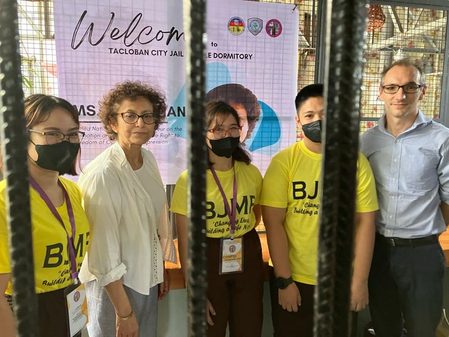
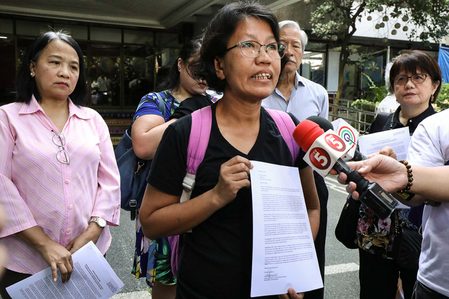
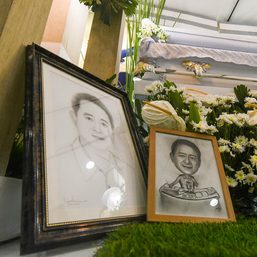

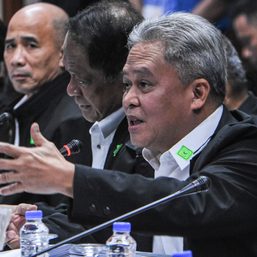







![[WATCH] Silent Tragedy: Epekto ng war on drugs sa mga bilangguan](https://www.rappler.com/tachyon/2024/06/silent-tragedy-tcard.jpg?resize=257%2C257&crop_strategy=attention)


There are no comments yet. Add your comment to start the conversation.